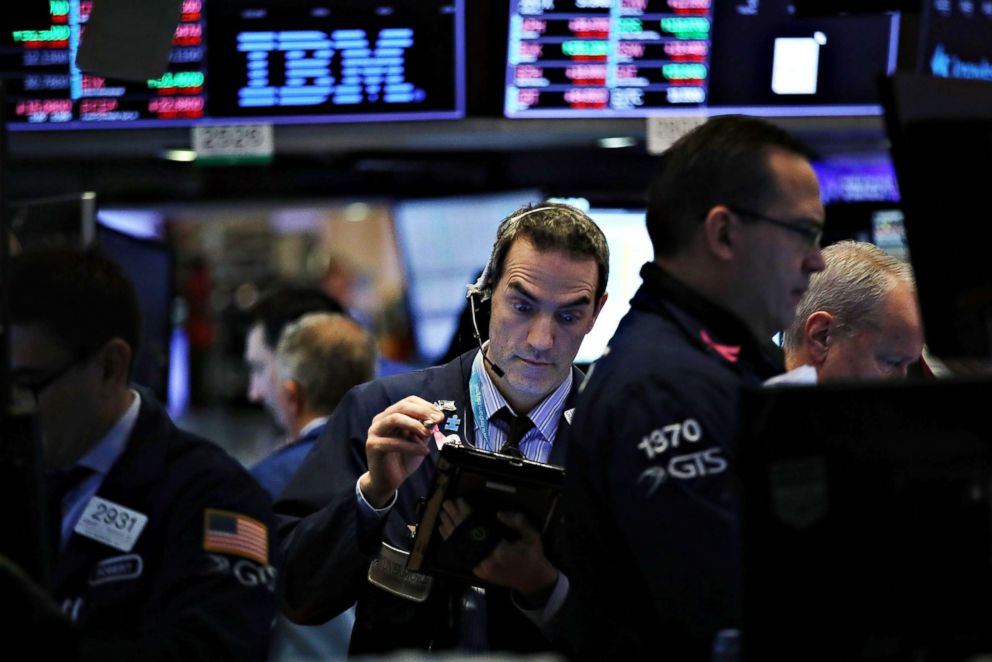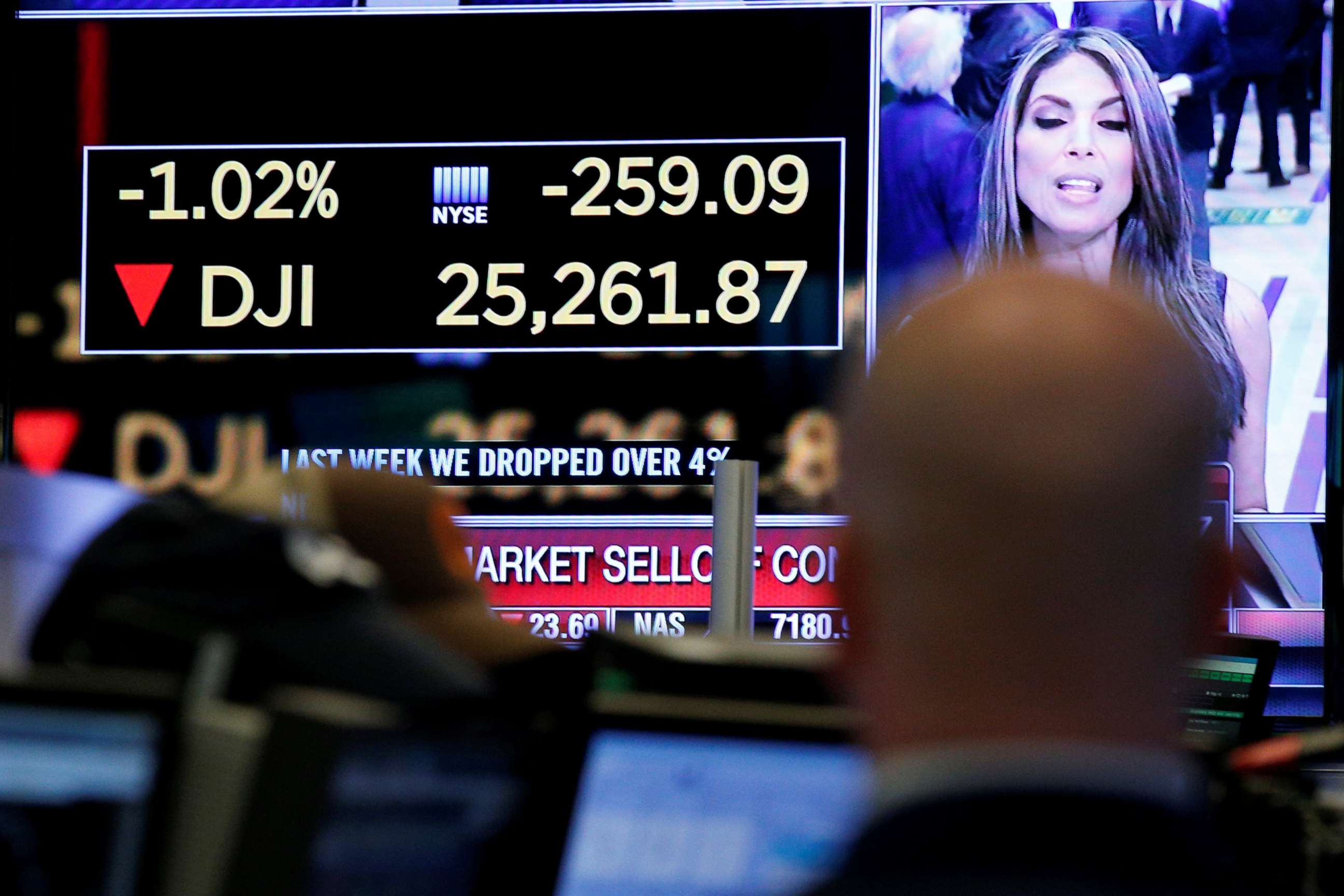Dow plunges more than 1,100, largest single-day point drop in history
The Dow Jones industrial average plunged a record 1,175 points on Monday.
— -- The Dow Jones Industrial Average plunged 1,175 points on Monday, its largest one-day point drop in history, to close at 24,345 -- a decline of 4.6 percent.
At one point, the Dow was down more than 1,600 points before slightly rebounding at the closing bell.
The previous record decline for the Dow came on Sept. 29, 2008, at the height of the global financial crisis, when it fell 778 points. The Dow is still up 21 percent compared to a year ago.
Health care, energy and financial stocks posted the largest declines. All 11 sectors of the S&P 500 were down.
The S&P 500 slumped 4.1 percent to 2,648. The Nasdaq dropped 3.78 percent to 6,967.
Randy Frederick, vice president of trading and derivatives for Charles Schwab, told ABC News the fall had been expected after markets hit record highs.
"When you've gone 18 months without a 5 percent pullback, so you would expect one," Frederick said.
He said the market has “been going almost straight up since the start of the year,” adding that the pullback was “expected and healthy."

“It doesn’t mean the bull market is over; it simply takes away some of the froth and irrational exuberance from stocks and puts us back on a more sustainable trendline," Frederick said.
Frederick an uptick in inflation indicators, including a decline in productivity, the expectation the Federal Reserve will hike interest rates could have influenced the volatility in the market on Monday. He said that Monday's sell-off appeared to continue up to the closing bell and that it may not be over.
"People need to be a little bit cautious," Frederick said. "It's time to sit back and wait because we might not have hit bottom."
The Dow plummeted as President Donald Trump was speaking to workers at the Sheffer Corporation in Cincinnati, touting the recently passed tax overhaul law.
"America is once again open for business," Trump said in his speech.
White House press secretary Sarah Sanders downplayed the stock market drop as a part of a normal seesaw of the market but maintained that the overall direction of the economy under Trump is strong.
“The president’s focus is on our long-term economic fundamentals, which remain exceptionally strong, with strengthening U.S. economic growth, historically low unemployment, and increasing wages for American workers," Sanders said in a statement Monday afternoon. "The president’s tax cuts and regulatory reforms will further enhance the U.S. economy and continue to increase prosperity for the American people.”

The political challenge for the White House is trying to distance the president from a bad day on the stock market. Trump, of course, has been quick to take credit for the stock market on its good days.
The market meltdown came just hours after Jerome Powell was officially sworn in as the new chairman of the Federal Reserve, replacing Janet Yellen, who had served as Fed chair since 2014.
But Frederick said Powell's taking over the helm of the Fed likely had little effect on Monday's market swing because Trump announced he was his pick to head to Fed back in October.
"If the market is going to react to that kind of news, it's generally when it is broken," Federick said.




